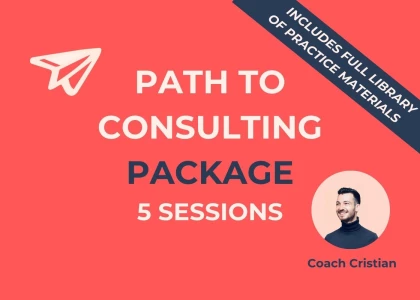Hi all, I've just joined a consulting firm as a consultant a while ago. I feel that for several project meetings that I have participated, I didn't speak up enough, and I have received feedback that I am stating more ‘’facts'' instead of ‘’views''. My aim is to establish my credibility, ‘’get noticed'' by partners, and showcase individual thinking.
From a practical view point, could you share some tips on how can juniors (consultant level) participate impactfully in meetings? Are there any best practice and things to take in mind? Thanks a lot!












